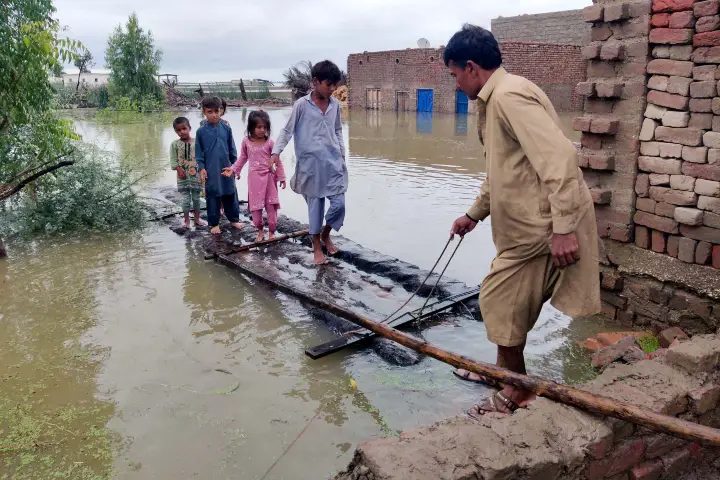For Pakistan, food shortage could intensify as heavy rains have once again started playing havoc in several parts of the country including Punjab and Khyber Pakhtunkhwa, leaving many dead while damaging crops. Rice, cotton and sugarcane are among the main Kharif season crops grown in these regions.
According to the country’s Meteorological Department, more rains are expected in the coming days which could even lead to flooding. Last year, country suffered a loss of about $40 billion due to the floods.
This year’s floods are even more concerning as large swathes of land continue to be uncultivable after the devastating floods last year. Now this season’s heavy rains could further deal a blow to the all-important agriculture sector. Damage of crops would push up inflation while leading to shortage of food. Pakistan’s need to increase imports of food could also rise.
Even as Pakistan managed to strike a deal with the International Monetary Fund for a bailout package of $3 billion through a Stand By Arrangement, in case the incessant rains continue causing floods, the damages would be brutal.
However, Pakistan Prime Minister Shehbaz Sharif seems to have chalked out his priorities as general elections approach. He has urged the country’s citizens to unite in protesting the desecration of the Quran in Sweden. An analyst said that he may be playing with fire. At a time, when the country is going through one of the worst economic crises, such acts that easily fan religious fanaticism denting business sentiments. Several multinationals are already looking to rejigging their business operations in Pakistan.
While most Muslim dominated nations have strongly criticised the burning of the Quran outside a mosque in Stockholm, few have taken such an extreme measure.
Speaking with one voice, the whole nation will give a message to the evil minds,” Sharif said, Geo TV reported. Not just that. Islamabad has also decided to hold a joint session of Parliament “to devise a national strategy over the Sweden incident.”
Sharif and his team need to focus on resetting the economy, which despite the IMF’s loan continues to be in a critical state. Islamabad will have to make an immediate repayment of 3.7 billion. By 2025, the repayment amount will stand at $73 billion.
A question then arises: Is Sharif trying to divert people’s attention by playing a dangerous game? While this may work in the short run, its adverse impact in the medium to long run is not hard to visualise.
Also read: Pakistan may avert a default with IMF loan, but what’s next for Islamabad?




















